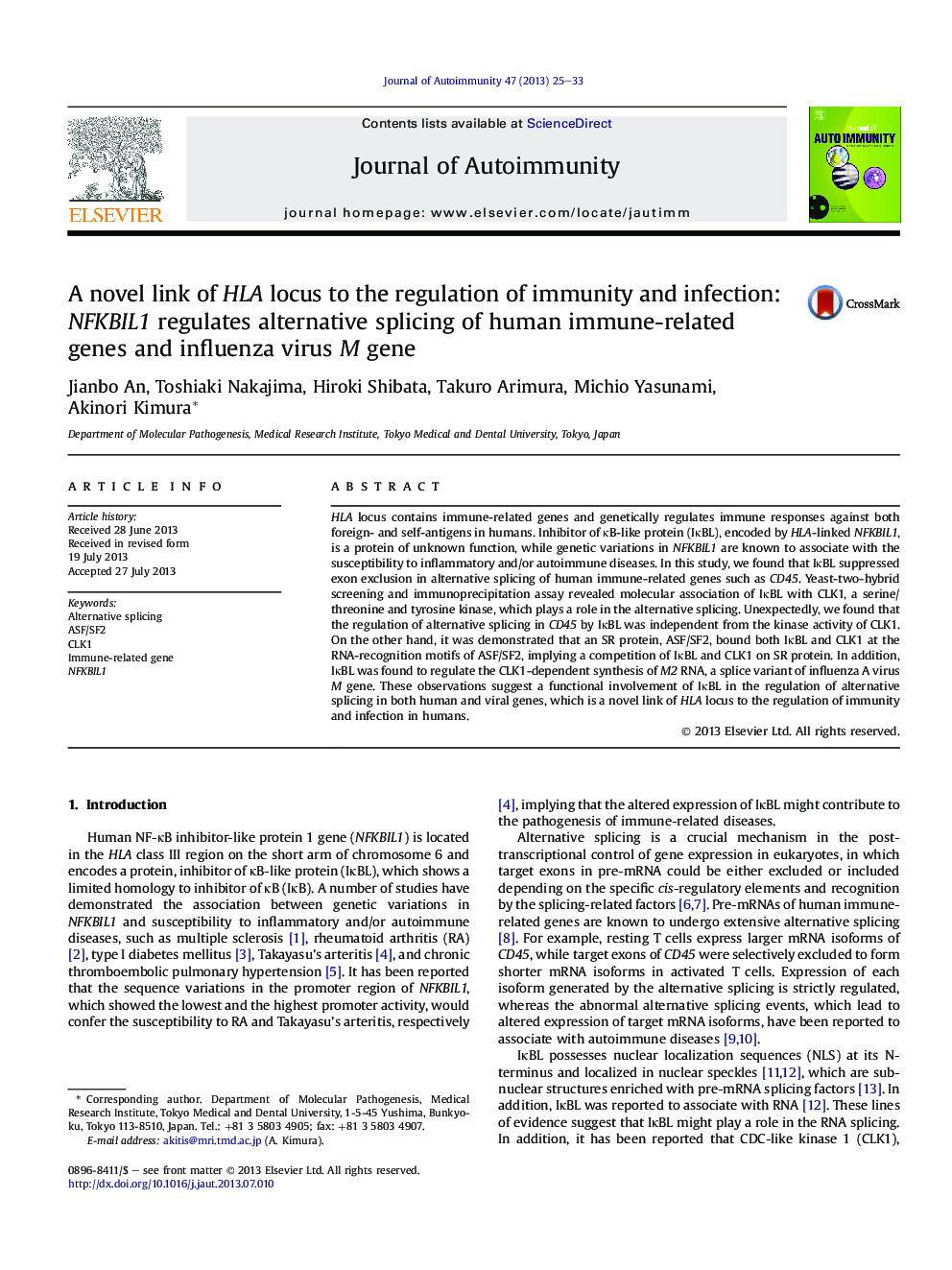| Article ID | Journal | Published Year | Pages | File Type |
|---|---|---|---|---|
| 3367814 | Journal of Autoimmunity | 2013 | 9 Pages |
•IκBL encoded by HLA-linked NFKBIL1 participates in RNA splicing.•IκBL regulates the splicing of immune-related genes CD45, CD72 and CTLA4.•IκBL binds a splicing-related kinase CLK1 and an SR protein ASF/SF2.•IκBL regulates the splicing of influenza A virus M gene.•IκBL counteracts against CLK1 in the splicing.
HLA locus contains immune-related genes and genetically regulates immune responses against both foreign- and self-antigens in humans. Inhibitor of κB-like protein (IκBL), encoded by HLA-linked NFKBIL1, is a protein of unknown function, while genetic variations in NFKBIL1 are known to associate with the susceptibility to inflammatory and/or autoimmune diseases. In this study, we found that IκBL suppressed exon exclusion in alternative splicing of human immune-related genes such as CD45. Yeast-two-hybrid screening and immunoprecipitation assay revealed molecular association of IκBL with CLK1, a serine/threonine and tyrosine kinase, which plays a role in the alternative splicing. Unexpectedly, we found that the regulation of alternative splicing in CD45 by IκBL was independent from the kinase activity of CLK1. On the other hand, it was demonstrated that an SR protein, ASF/SF2, bound both IκBL and CLK1 at the RNA-recognition motifs of ASF/SF2, implying a competition of IκBL and CLK1 on SR protein. In addition, IκBL was found to regulate the CLK1-dependent synthesis of M2 RNA, a splice variant of influenza A virus M gene. These observations suggest a functional involvement of IκBL in the regulation of alternative splicing in both human and viral genes, which is a novel link of HLA locus to the regulation of immunity and infection in humans.
